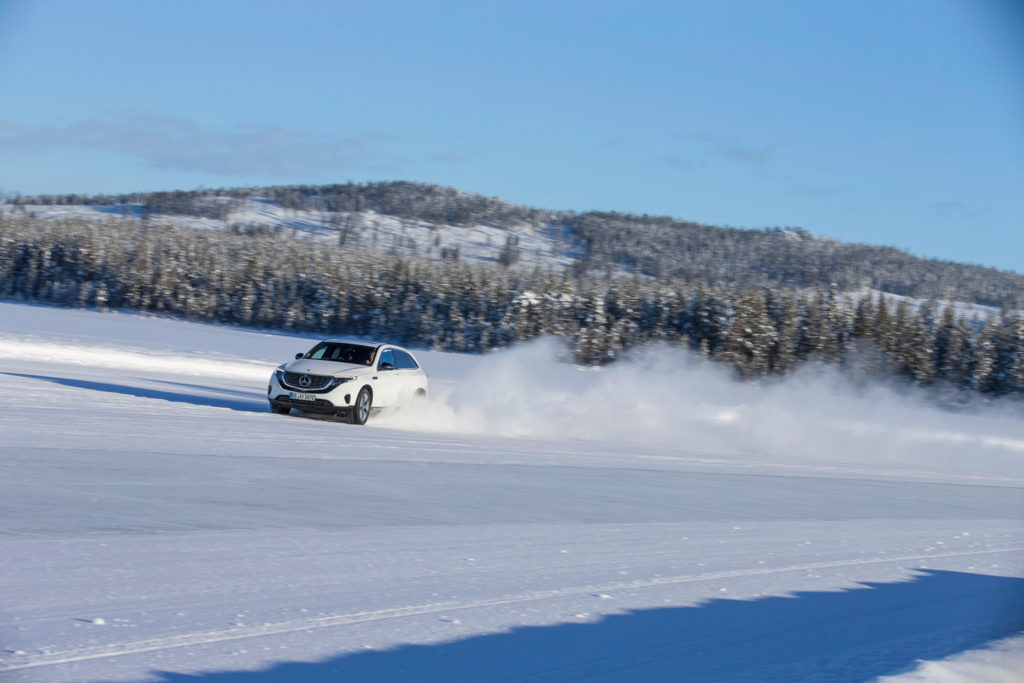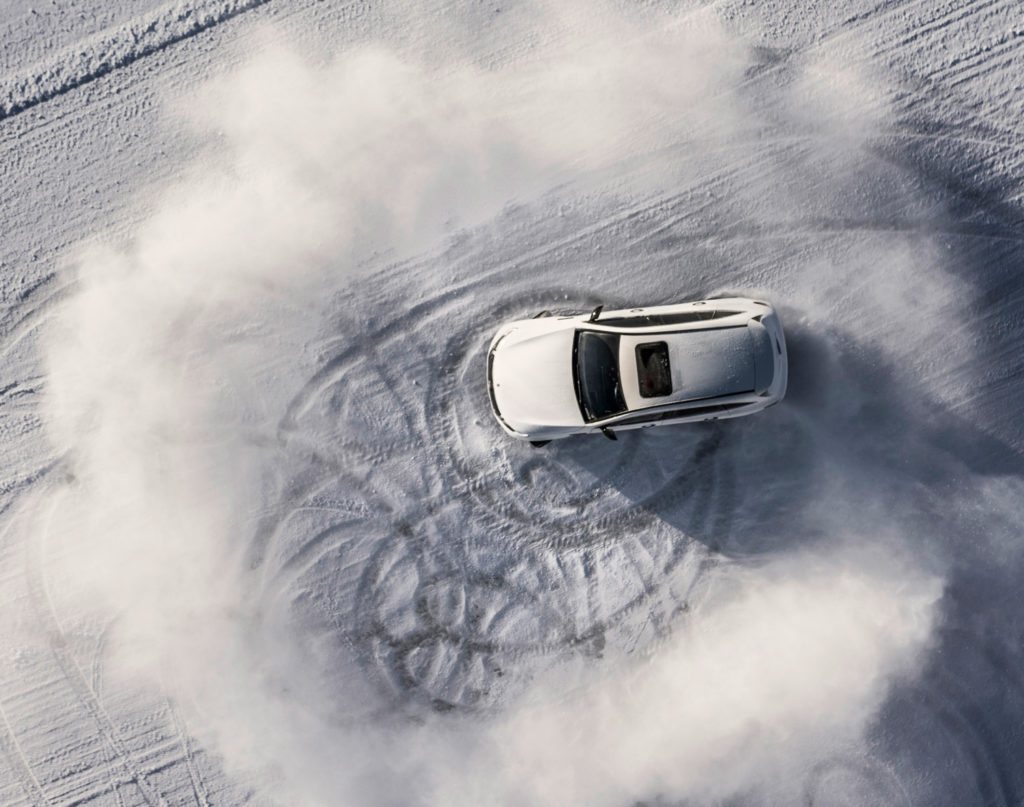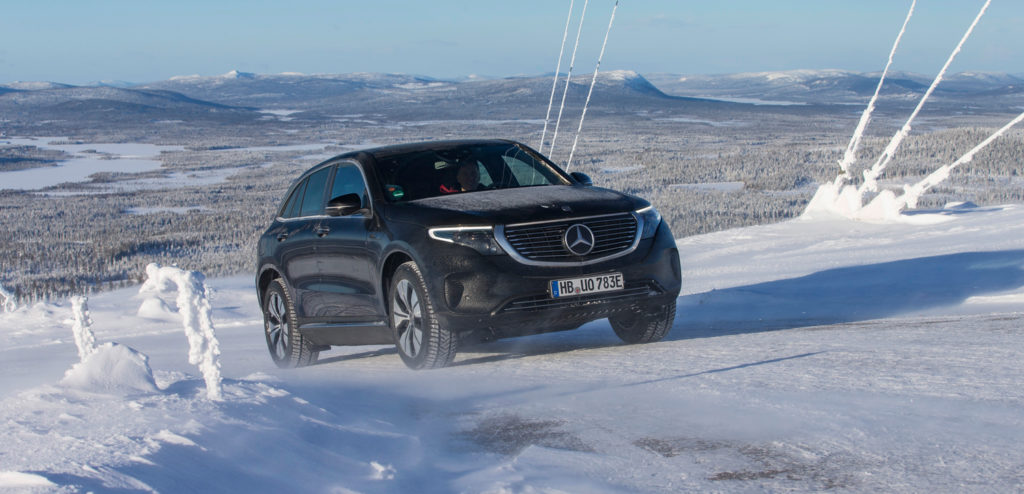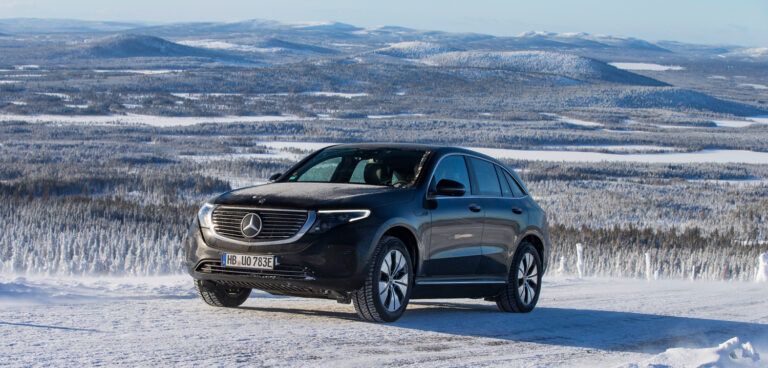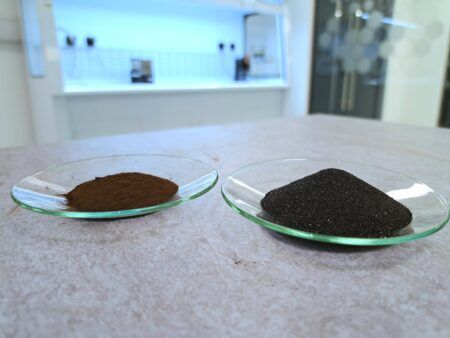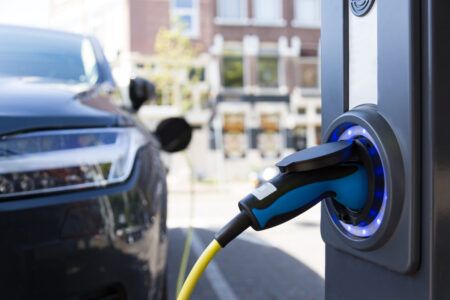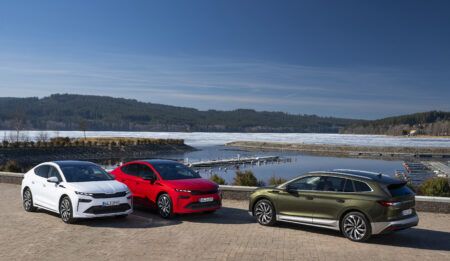The Mercedes EQC has undergone final testing in Arjeplog, Sweden, ahead of the all-electric vehicle’s market launch.
The winter trials were focused on thermal management of the battery and interior, recharging in cold conditions, and handling safety, traction and recuperation on ice and snow.
Testing was undertaken on roads and prepared tracks and, in contrast to earlier programs, was focused on final details and optimization of fine details specific to electric vehicle applications.
Mercedes-Benz engineers focused on a number of areas, such as: cold-starting and thermal comfort – ensuring available power at cold start is sufficient for vehicle operation; pre-entry climatization; range in cold operating conditions; the effects of ice and snow; the performance of compartment seals during operation; the performance of the motor compartment and axles in snow conditions; and operation of sensors in ice and snow conditions.
Work was also undertaken on the interaction between the electric powertrain and the electronic stability control.
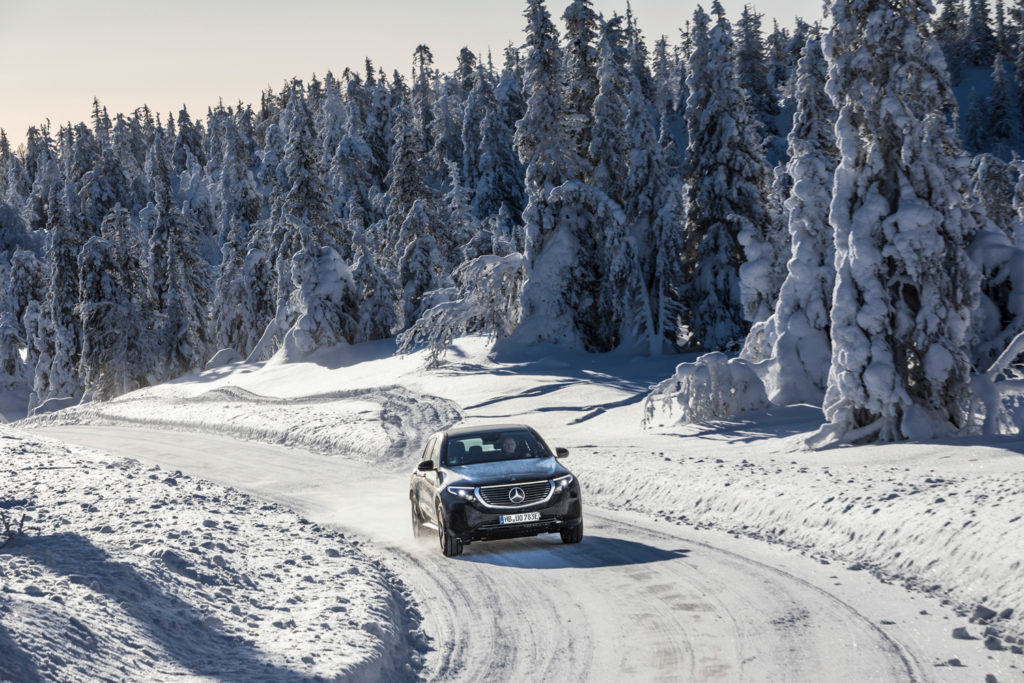
When examining thermal management and cold-weather charging, EQC engineers considered the changeable performance of the high-voltage battery, as well as operating strategies utilizing ceramic positive temperature coefficient thermistor (PTC) technology, applied to reduce the strain on the battery and keep it in an efficient operation window.
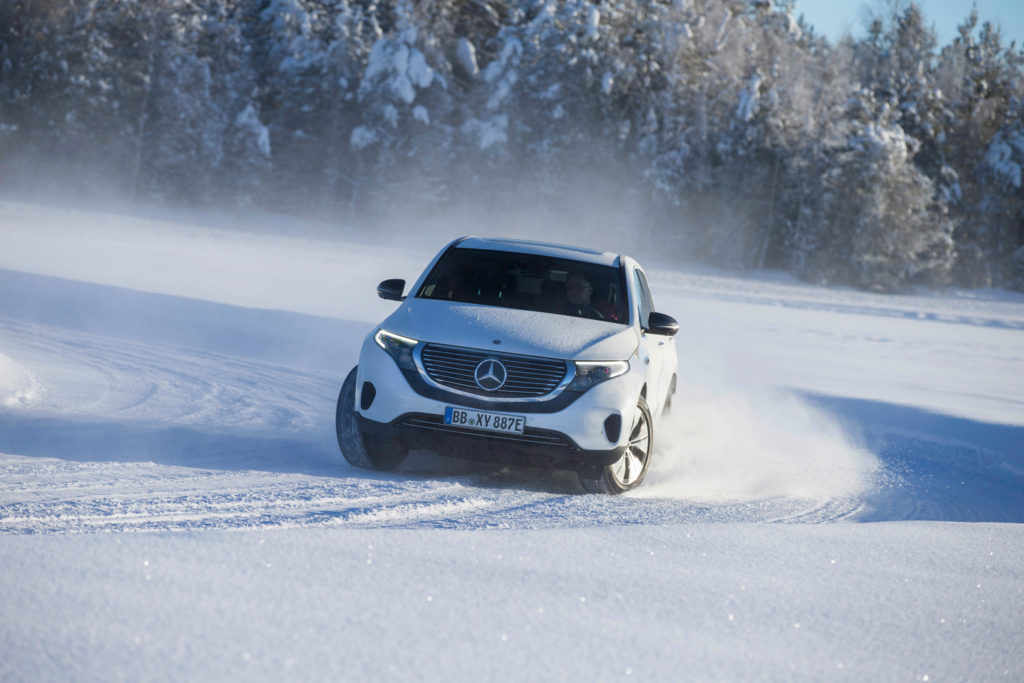
Optimizing traction and handling stability required careful study of the operating strategy – adapting spinning wheels and adapting torque distribution. The engineers also examined braking recuperation in icy conditions with less surface adhesion.
